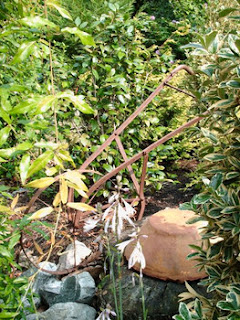As the holiday season approaches, have you considered gift choices that enable eco knowledge, enable an ability to 'put on your green glasses'? If not, you are not alone. Not everyone experiences the benefit of a lifestyle – legacy - that encourages ‘plugging in’ to living green that surrounds them.
On the other hand, as the descendent of a long line of gardeners, I recall childhood experiences of helping my parents and grandparents with their garden. For in my family, children were not only encouraged to have soiled clothes and dirty hands but dig in the dirt! Nevertheless, the further I ventured into the world of gardening, the more I've question its impact on the environment.
Gardening and eco-friendly gardening are not necessarily the same activities. In fact, survey statistics released by the National Garden Bureau identified of 12 eco-friendly surveyed items only 3 are viewed as somewhat successfully observed by homeowner and/or backyard gardeners. It appears that as a Nation, we have participated for more than 50 years in a “Green Revolution”; yet, on the whole, have failed. As a result, it will take more than simply a “love of all things green” to make it work – ‘plug in’.
So, begin your experience by acquiring a basic understanding of the impact of lifestyle choices, your eco-footprint. Then expand your experiences. In the Greater Richmond Area, there are opportunities of exposure to activities that “inspire Virginians to enrich their lives through science” – activities provided by the Science Museum of Virginia. In addition to exhibits and activities that meet ‘standards of learning’ requirements, this site offers ‘hands on’ opportunities to experience ‘green science’.
There are also independent ‘gifts of plow’ that can be acquired such as a weather station; and depending on the age range of those involved, green science kits and toys. So, instead of stumbling through eco efforts, let knowledge become your mentor. Educate yourself and then, incorporate what you learn into daily experiences. Become a person who is open to new and different ideas and share them; for, unless knowledge is shared, it is stagnant.
In the spirit of the holiday season, won't you join me in a quest to green life’s garden one scoop at a time. Give gifts that encourage others to ‘dig in the dirt’: reflect eco-chic, ‘plow, not hearth’. Individually and/or collectively, not only do we have opportunities to make a difference through personal choices but can influence others through our use of green space, both rural and urban. For additional tips and strategies, visit web site TheWrightScoop.











